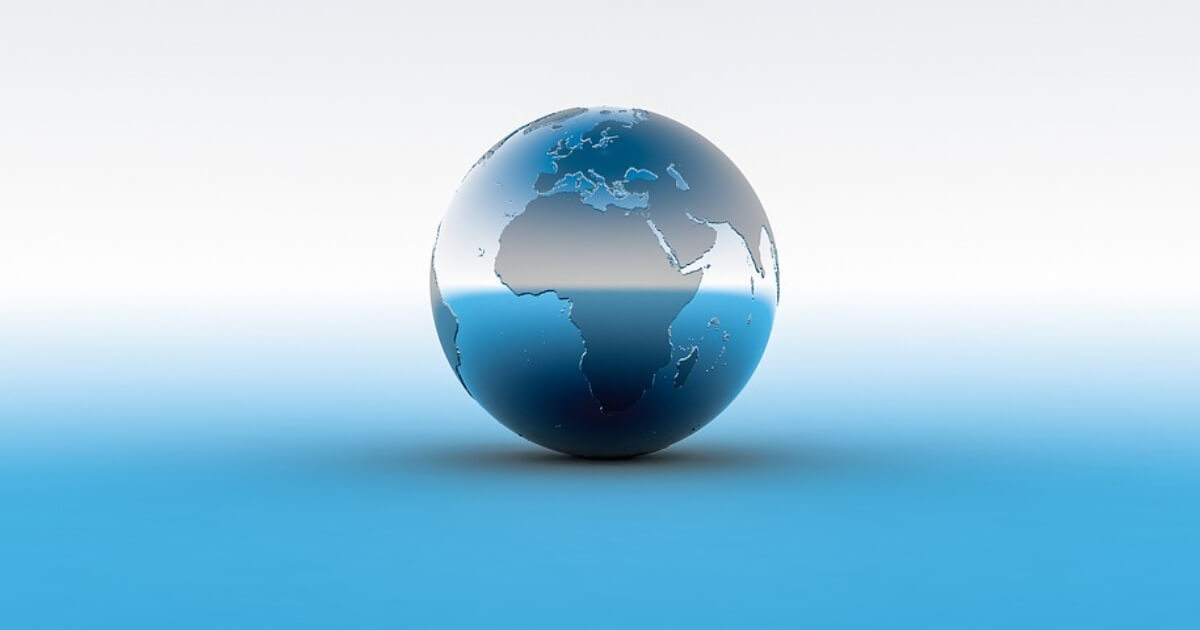Are We Globalists Really Godless People?
Globalism, elitism, populism and God.
May 31, 2021

About 420 B.C., over 2,400 years ago, the philosopher Democritus of Abdera wrote: “To a wise man, the whole earth is open. For the native land of a good soul is the whole earth.”
Global connectedness…
His point was simple. Translated into today’s world, he appeals to all of us to accept that the existential challenges human beings face can only be effectively addressed through efforts that go beyond one’s own person, family, group or nation.
Unless we accept that, he argues implicitly, we will not manage to adopt the policies required to build a better future.
Vs. the head-in-the-sand brigade
Hard-right populists will forever deny the validity of the insight offered by Democritus. They seek salvation in the nation state instead.
And even there, they apparently only want to include people who look like themselves, preferably share their particular political viewpoint and have lived in the country for generations.
A leading German “anti-globalist”
To see how this plays out, let’s look at Germany. Hans-Georg Maaßen is a former head of Germany’s domestic intelligence agency. Relieved of his duties some time ago for right-wing leanings, he is now running for a seat in the Bundestag, the German parliament, in this fall’s elections as a candidate for the CDU, Angela Merkel’s party.
As Maaßen sees it, “Globalists and socialists (and parts of the clergy) are united in their contempt of ordinary people, their way of life, their culture as well as their desire to determine their own lifestyles.”
Take that, globalists! Timo Soini, the founder of Finland’s anti-establishment True Finns Party and the author of a short book on populism, went even further than Mr. Maaßen. In a 2020 feature interview with the Financial Times, he opined that “Globalism is God for Godless People.”
Escapism and complexity
Naturally, as the founder and editor-in-chief of online magazine The Globalist, those quotes got my attention.
I realize that we live in complex times. Almost all solutions to the existential problems the world faces today involve nuanced, multi-faceted actions. Getting there can be very frustrating.
It is hard not to conclude that Messrs. Maaßen and Soini simply refuse to deal with these complexities and instead choose to resort to highly charged quotes.
At a moment when the underlying societal, economic and environmental pressures are increasing, there is a natural tendency to look for simple answers.
Railing against the human condition
This yearning for simplicity offers a comforting, but illusory solution—the rejection of any and all approaches that require multiple actions on multiple levels by multiple parties.
That is also why being against “globalism” often boils down to an instinctive railing against not just the complexity of human existence, but the human condition itself.
But it is hard to deny that human survival depends on many variables like climate change, infectious diseases, technology and demographics.
Unwilling to assume collective responsibility
Faced with that reality, populists love putting their collective heads in the sand. Their way out? Just assign all the blame for the world’s problems to “globalists” (usually unspecified “foreign” elites).
To escape the 2,400-year-old wisdom of Democritus cited at the outset, it is apparently much more convenient for populists to use the word “globalist” with conspiratorial overtones, hinting of a plan for world domination.
Intriguingly, that effort is by no means restricted to right-wing populists. In a bizarre, but telling ideological alliance, left-wing populists love it just as much.
World government, conspiracy and worse
Populists on the right and left suggest that dark forces want to bring about a world government. Such a unified federal political system, combining all nations, is meant to constrict, if not extinguish individual nations’ breathing space.
And even that description represents the kinder, gentler interpretation of “globalism” that populists like to bandy about. The cruder version sees it as a Jewish-led world conspiracy of the ultra-rich.
The profile of a true globalist
In reality, globalists are a far cry from the destructive, greedy, elite of the populist fantasy. A real globalist thinks deeply about the world.
He or she acknowledges the interconnectedness of things – not as any dark scheme, but simply the physical and logical reality.
Therefore, a globalist is someone who, by keeping an open mind, takes a holistic view of global challenges. This is nothing to be ashamed of – and certainly nothing conspiratorial whatsoever.
And, contrary to the proclamations of right-wing populists, it neither call for nor implies an end of the relevance of the nation state.
The wisdom of a 17th century English poet
The constructive and realistic mindset of today’s globalists was already powerfully captured in the 17th century by the English poet John Donne’s famous line, “no man is an island entire of itself.”
Donne’s further words are the key: “every man is a piece of the continent, a part of the main…”.
In short, human existence, no matter where one lives, is global in scope. That age-old insight – witness Democritus – is inescapable in these interconnected times.
Sadly, more and more countries – especially those, tellingly, led by autocrats – appear to be opting to become “an island entire” of themselves.
The domestic cowardliness of the nationalists
What is especially revealing is that right-wing populists, either explicitly or at least implicitly, often frame the political debate as a battle between the elites and the people.
In and by itself, there is nothing wrong with that. Inequality is one of the biggest challenges of our time. But why conflate that debate with globalism?
For all their self-acclaimed courage, all those anti-globalist populists become vague when it comes to addressing the domestic sources of inequality in their respective countries.
Instead of dealing with that in a constructive fashion, populists conveniently shift the target beyond their nation’s borders, by blaming “globalists”.
Conclusion
All of which leads one to wonder whether the use of the term “globalist” as a pejorative term in the global political debate isn’t an elaborate ruse to deflect the necessary debate about existing problems about equity beyond one’s own national borders.
The underlying goal of the deliberate and intense effort to mis-cast globalists is to create a division between “us” and “them”.
That ultimately denies our common humanity and is obviously a road to nowhere.
Takeaways
Why conflate elitism with globalism? Because the word “globalist” has conspiratorial overtones, hinting at a plan for world domination?
Populists, for all their self-proclaimed courage, are vague when it comes to tackling the domestic sources of inequality.
A key reason for the obscuring referral to “globalism” is that we live in complex times with no simple solutions. This is frustrating to populists on the right and the left.
True globalists are a far cry from the destructive, greedy elite of the populist fantasy.
Who is a globalist? Someone who thinks deeply about the world. Who keeps an open mind and develops an integrated way of looking at global challenges.
Populists tend to limit their area of moral concern to the population within the confines of their own nation.
The strongest argument against populism is that it creates a black and white division between “us” and “them,” setting up an inevitable clash.
For a globalist, there is no “us” and “them”, only a “we”. As in “we humans,” because the human race will either thrive together or die together.
Globalists have been accused of many things in the past – but, to the best of our knowledge, never before as “Godless people.”
Read previous

Global Cuisine
Sayonara to Foie Gras
May 29, 2021
